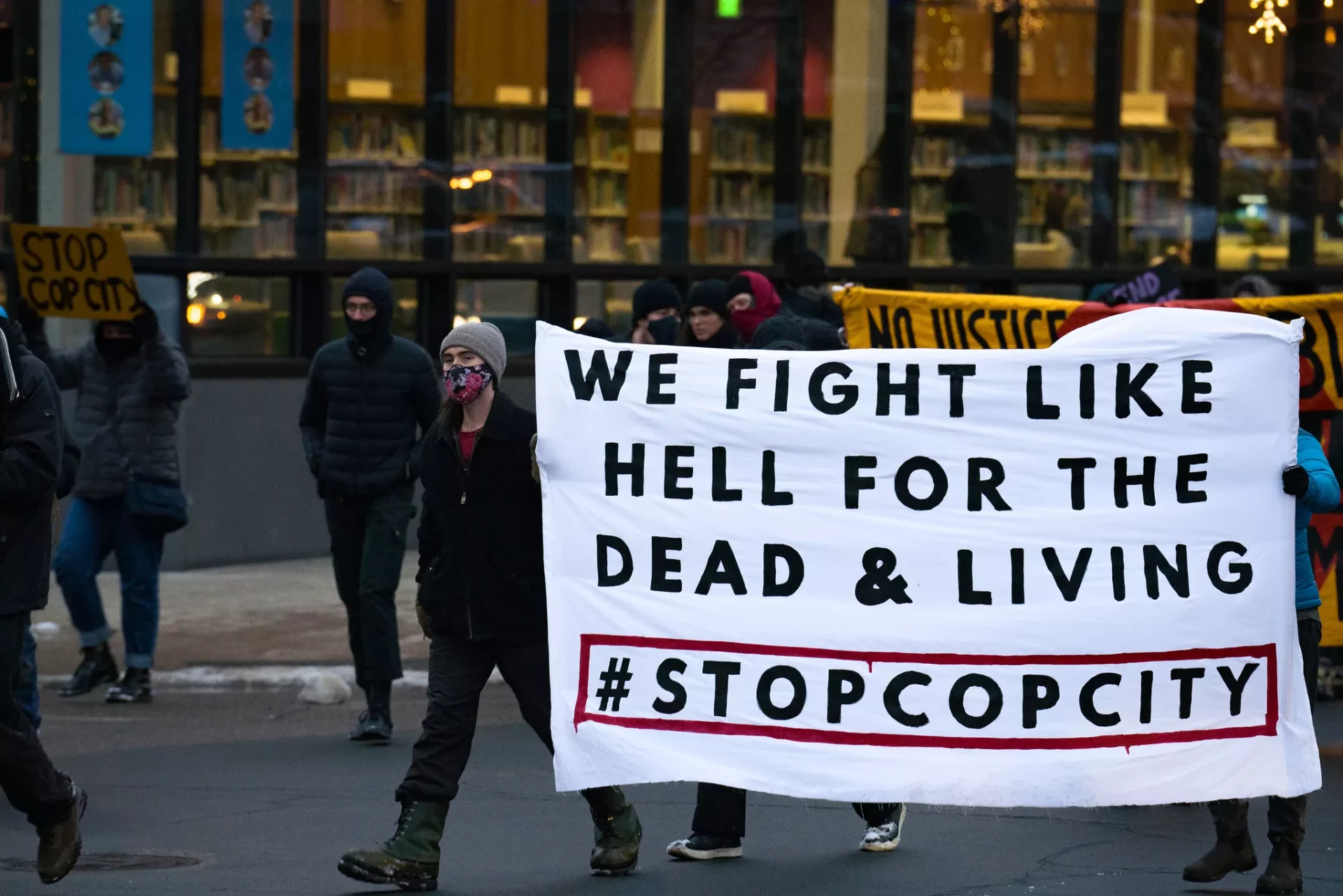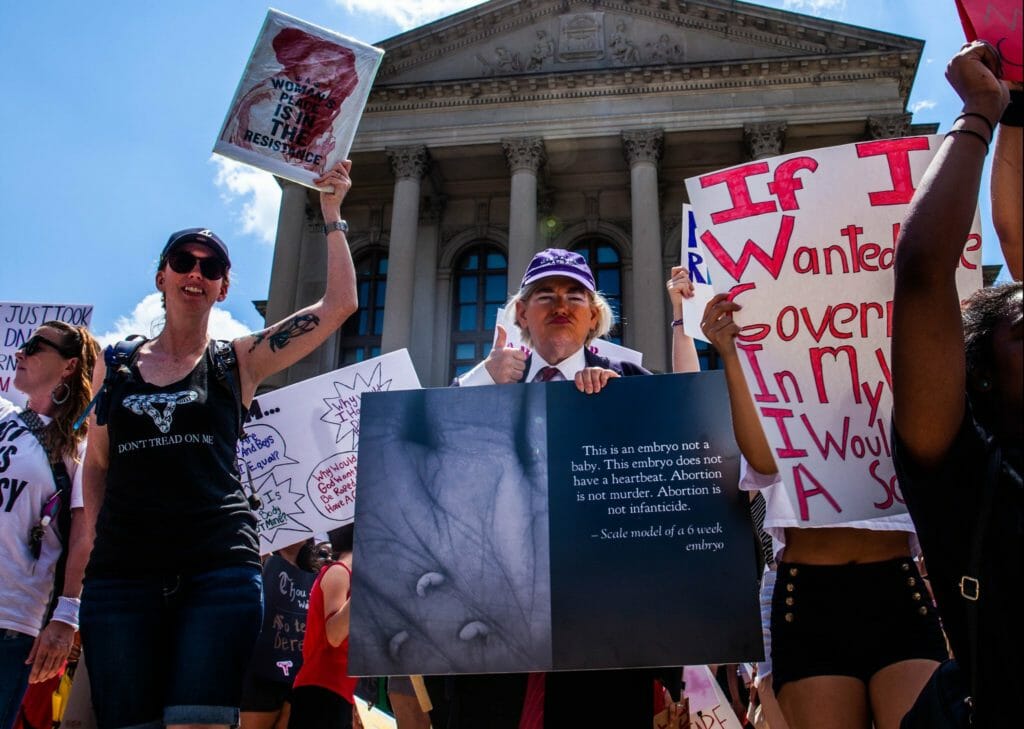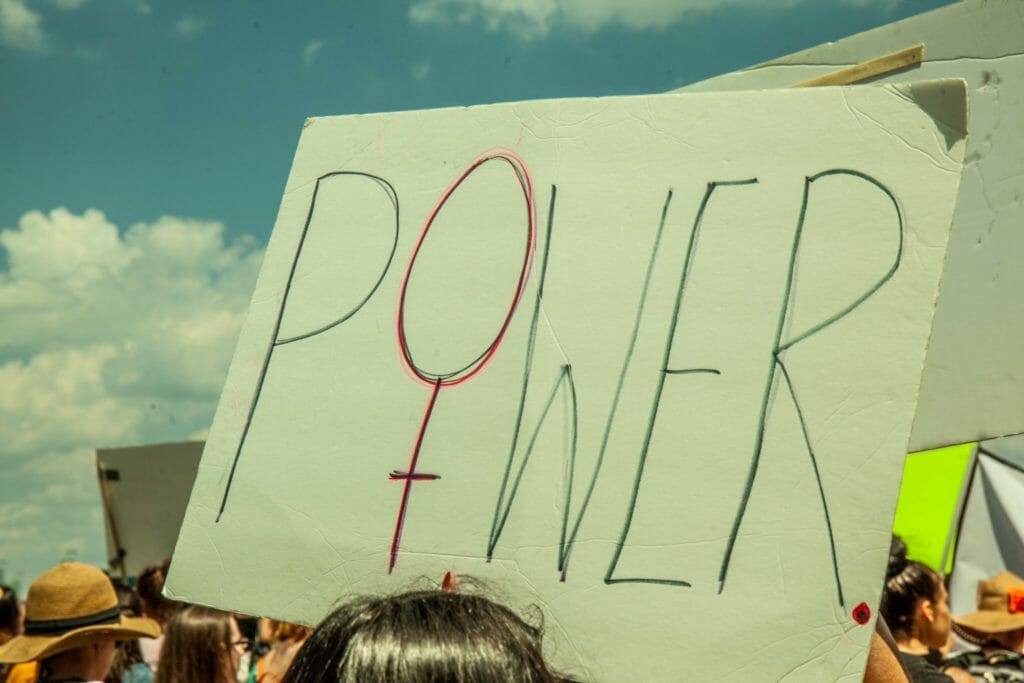Editor’s note: Monday, December 11, was the first day of trial in the “Cop City 61” RICO cases. This is our briefing of what’s happened so far. All details of this report have been verified with legal experts alongside the defense.
ATLANTA—The first “Cop City 61” RICO trial began on December 11 in the Superior Court of Fulton County. The defendant is Ayla King, who was arrested on March 5 at the South River Music Festival. Multiple eyewitness accounts have described the March 5 arrests as a “police raid” wherein dozens of people were apprehended indiscriminately by police. Statements to Mainline regarding the arrests also included eyewitness testimonies of police brutality.
King was one of 23 people charged with domestic terrorism in DeKalb County that day—charges that the elected district attorney has declined to prosecute.
At least 42 individuals have been arrested for domestic terrorism in the movement to Stop Cop City under Georgia’s domestic terrorism statute. All 42 individuals are included in the RICO indictment. However, none of the those arrested for domestic terrorism have been formally indicted by a grand jury.
The Cop City 61 cases are being heard by Judge Kimberly Adams, who is currently serving her fourth consecutive term. Prior to this, she was the the Chief Senior Assistant District Attorney in the Fulton County District Attorney’s Office.
King is the only defendant who filed a statutory speedy trial demand and has had their trial set. Other defendants who wanted to file for a speedy trial were not able to make the original deadline. Their attorneys have filed for an extension, which is an issue that Judge Adams has taken under advisement and therefore has not yet made a ruling. The current filing deadline for all motions, except King, is now March 15, 2024.
Judge Adams has scheduled the final plea calendar for June 2024, which would be the final time the judge says she will consider a pre-arranged plea deal between the state and any defendants. It is expected that trial dates will be set sometime after June 2024.
Throughout the morning of the first day of trial on December 11, the courtroom was closed to the public while the prosecution, the defense, and lawyers for the Atlanta Journal-Constitution and WSB-TV remained inside. Sources believe it is possible they discussing the judge’s previous order that excluded the media from the courtroom. That hearing, held on November 22, was in response to the defense’s emergency motion to seal the Attorney General’s motion seeking to introduce Manuel “Tortuguita” Terán’s alleged personal diary as evidence against all defendants. The Attorney General’s motion included a photocopy of the diary.
In response to the Rule 22, which governs the right to record court proceedings, Judge Adams allowed the media to record audio only. (This isn’t unusual given the court’s desire to protect the identity of jurors who are often asked deeply personal questions.) About 30 potential jurors were questioned on Monday, and one was excused for hardship.
To be qualified as a potential juror, jurors have to fit the statutory criteria, e.g. being a Fulton County resident and not currently serving on a grand jury. Jurors are also supposed to be free of biases for or against either party or have prejudged the case.
Jury selection continued on December 12. A fully jury was chosen by noon.
King’s trial will begin on January 10. So far, no pre-trial motions have been heard, including: the defense’s demurrers (their objections to the Attorney General’s indictment, which seek to throw out, or “quash,” the indictment entirely); the Attorney General’s motion to quash defense’s subpoenas, including a subpoena of Georgia Bureau of Investigation personnel information; and evidentiary motions to submit different pieces of evidence, including Terán’s personal diary, which remains unverified by the defense.
Additionally, King’s attorney has filed two motions for Judge Adams’ recusal, which have been denied. The first motion argued that Judge Adams lacked impartiality, while the second recusal motion argued that Adams engaged in ex parte communications with the prosecution. Judge Adams denied the second order while acknowledging she had ex parte communication with the Attorney General about summarizing the indictment to jurors, rather than reading it in its entirety. In her order denying recusal, Adams claimed this ex parte communication wasn’t improper.
This is a developing story and we will continue providing updates as these proceedings develop.




